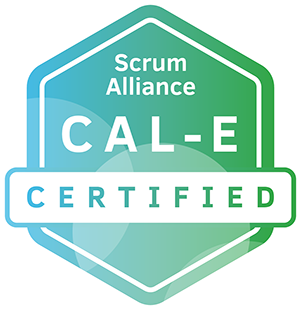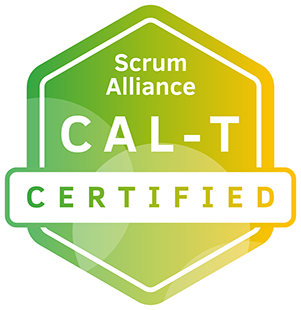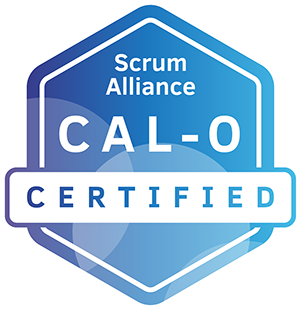FAQs
What happens with CAL I?
CAL I will be discontinued on December 31, 2020 and CAL I language and courses will no longer display on our site. We are asking CAL-Educators to update their current course materials and descriptions to reflect the new program at their earliest convenience.
What happens with existing CAL I students?
Those with the CAL I designation will keep their designation and will not be rebadged (unless requested).
CAL I students can request to be rebadged by emailing [email protected]
What happens to CAL II?
Remains as is. A combination of either CAL-E/CAL-T or CAL-E/CAL-O or CAL I acts as the prerequisite to pursuing CAL II.
Are these CAL offerings credentials or certifications?
Certifications. This means that students who earn one of these new designations will be invited to renew their certification in two years. Renewal requirements for the new CAL certifications are $50 and 10 SEUs per certification. Cost and SEU discounts will apply for those who hold other Scrum Alliance certifications. Please refer to the Renew Certifications page.
Why are these changes being made?
The changes to the program came about based on student and educator feedback, market demand and the intention of iterating on the program using what we have learned since its initial release.
Will there be changes to these new three certifications?
We will be collecting feedback on the program changes continuously after their release, and commit to implementing changes by December of 2020 to ensure educator and student satisfaction.
When can I start offering these new certifications?
CAL-Educators can start offering the new CAL-E, CAL-T, and CAL-O modules once they have updated their material; our system is ready to support the new program.
Will there be a change to the upload fee for students?
Yes, there will be a $25 upload fee per student per certification. This means that if you deliver only a CAL-T course, you pay $25 per student. If you deliver a combination course that covers CAL-E, CAL-T, and CAL-O the upload fee will be $75 per student.
How can I become a CAL-Educator?
The CAL Educator application process is now open to the Guide community. The application has been streamlined and application reviews are done internally by Scrum Alliance staff. The application fee remains $250 per course.
What are the new Learning Objectives for the new CAL certifications?
The new learning objectives can be found on your dashboard on your Scrum Alliance profile and are posted publicly on the CAL pages of our website. You can also find them by clicking in the links below. Please add your feedback on the LOs via the links further below.
Learning objectives:
How will customers learn about the new program?
Scrum Alliance will have a comprehensive marketing plan to create awareness of the CAL program and its benefits. Our intention is to use our platform to educate customers about agile leadership and its value, ultimately increasing interest in our courses.
Who do I contact for additional information?
We are at your service through this transition. Please contact [email protected]
Based on feedback from Scrum Alliance certified educators and their students, we’re adapting CAL I, with your collaboration, to include three courses: CAL-Essentials, CAL-Teams, and CAL-Organizations. The model for these Certified Agile Leadership courses is flexible, allowing you the autonomy to choose how you deliver the program to provide the most impact for your participants. From the models you choose to the mix of training and coaching you provide, how you bundle these learning objectives in distinct learning sessions is up to you.

About Certified Agile Leadership Essentials
The goal of this course is to bring awareness and understanding of the foundations of agile leadership. Exploring the way agile leaders think, focus, and behave allows the participants to begin their learning journey regarding what it takes to lead in today’s workplace.
Organizations today are striving to stay on top of rapidly changing business needs and are coming to understand that the need to respond and adapt quickly is becoming increasingly important. Business leaders are now required to shift the way that they think about their role as a leader, their relationship to their employees, and the culture of their organization. Agile leaders are needed to help their organizations thrive in a volatile, uncertain, complex, and ambiguous (VUCA) world.
Read learning objectives and
give feedback.

About Certified Agile Leadership for Teams
The goal of this course is to create awareness about the changing dynamics in today’s world of work and equip leaders with the practices they need to effectively lead their teams. Agile teams require an alternative to the traditional leadership approaches of the past in order to achieve better outcomes and thrive in this VUCA world (as learned in the CAL-Essentials module).
This course will help participants understand how their natural dispositions might affect their team and how to influence the workplace empowering teams to thrive. Leaders will learn how to create a safe-to-fail environment while fostering a culture of transparency, inspection and adaptation to allow for experimentation and continuous learning within their teams.
Read learning objectives and
give feedback.

About Certified Agile Leadership for Organizations
The goal of this course is to bring awareness to the practices and principles of agility and how they apply to businesses and organizations. Through analysis of case studies, assessment, discussion and evaluation, participants will gain insight into what practices will enable them to lead real change across their organization.
Business leaders are encouraged to shift their mindset, evolve and lead their organization in empowering employees and becoming agents of change. In this module, participants will gain tangible knowledge, skills, and techniques that will help them towards making organizational agility a reality for their companies.
Read learning objectives and
give feedback.
Designed with Your Audience in Mind
- CAL I was 17 hours of educator/student contact. A modular approach overcomes scheduling challenges and can improve completion rates, with training sessions as short as one day.
- This new structure better supports what customers and clients are asking for, so your courses more naturally fit with what the market requires right now.
- Your customers can now easily schedule a combination of training courses that fit their personal and professional goals, and meet the needs they currently face in their career.
- Your newly expanded portfolio of training options empowers you to help more clients, more effectively, by addressing contextual needs with a more personalized curriculum.
- Reach new customers in the broader agile space with an expanded, customizable offering.
Rollout Plan
- Phase 1:
Educators update current course materials and descriptions to reflect program changes.Educators may begin offering the new CAL-E and/or CAL-T modules, as well as provide feedback to Scrum Alliance for program updates via the links above.The CAL-Educator application process reopens to the guide community for teaching CAL-E and CAL-T.
- Phase 2:
CAL-O learning objectives are finalized.Educators may begin offering the new CAL-O module, as well as provide feedback to Scrum Alliance for program updates via the links above.- The CAL-Educator application process reopens to the guide community for teaching CAL-O.
- Phase 3:
- CAL I will be discontinued on December 31, 2020 and we will only offer the new modules starting January 1, 2021.
- CAL Educators that had a CAL I scheduled before the end of this phase will be able to upload students but new CAL I courses cannot be scheduled.
- The application for teaching the new CAL modules will be opened to qualified non-guide applicants.
CAL-Educators Pete Behrens, Bob Hartman, Kate Megaw and Andrea Tomasini worked in partnership with the Scrum Alliance leaders team to make these programmatic changes. We thank them for their insights and valuable contributions.